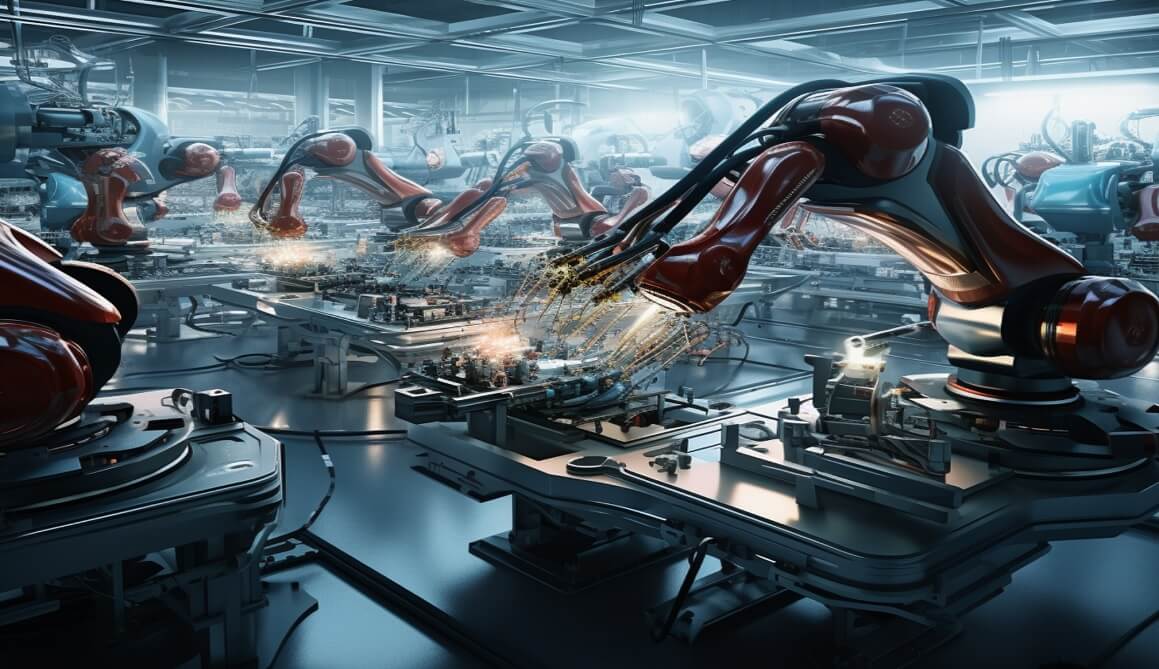The manufacturing world is changing fast, thanks to advanced robots. This big change isn’t just about making tasks automatic, it’s about changing the way products are made and how businesses run. We’re going to look at how this exciting change is happening across different areas, what we might see in the future, and think about what’s right and wrong in these changes.
Table of Contents
The Rise of Robotics in Modern Manufacturing
In recent years, robots have really changed how things are made. Companies like Tesla and Siemens are leading the way by using robots for all kinds of jobs, from easy tasks to putting together small parts. For example, Tesla uses robots to make cars. This isn’t just about doing things faster; it’s about doing them with more accuracy and fewer mistakes, which speeds up how many cars they can make.
Companies like ABB Robotics and Yaskawa Motoman Robotics are also important because they make robots that can do really detailed work, almost like a human, but in places like factories. This helps make products better than ever before. It’s not just about doing things quickly, it’s about working together with robots in new ways that help make things better and solve problems, especially in making electronics, like what Foxconn does. They use robots to put together tiny parts accurately, making sure everything works well and gets done fast.
Impact of Robotics on Manufacturing Business Models
The integration of robotics has not only optimized production processes but also revolutionized business models within the manufacturing sector. Consider Amazon’s acquisition of Kiva Systems, now known as Amazon Robotics. This smart change improved how they manage their warehouses, allowing them to deal with a huge number of orders more efficiently than ever before. This shows how robots can greatly reduce operating costs and improve the ability to handle big operations.
Companies like Adidas have also embraced robotics to bring production closer to their markets. Through their Speedfactory, Adidas integrates robotics and 3D printing, enabling them to offer customized products quickly. This shift shows how advances in robotics are allowing manufacturers to become more agile, moving from mass production to mass customization. This caters to individual consumer preferences in a way that was previously unimaginable. Robotics in manufacturing also helps small businesses by improving efficiency and reducing production costs, allowing them to compete with larger companies.
Future Trends and Ethical Considerations in Robotic Manufacturing
Looking ahead, the horizon of robotic manufacturing is expansive and intriguing. The idea of completely automated factories, often called lights-out manufacturing, is turning into a real possibility. Companies like Fanuc and their fully automated robot factory showcase this trend perfectly. Here, robots are not just the workforce they are also the product, highlighting a self-sustaining manufacturing ecosystem.
Besides these businesses and sectors, industries like online entertainment, including those that provide online live roulette games or streaming services, are also heavily relying on technology for innovation. This similarity highlights a common trend: no matter the industry, keeping up with technology is essential. However, this rapid evolution brings some ethical considerations. As we move towards more automated production lines, concerns about job losses and the need for new skills are becoming more common.
